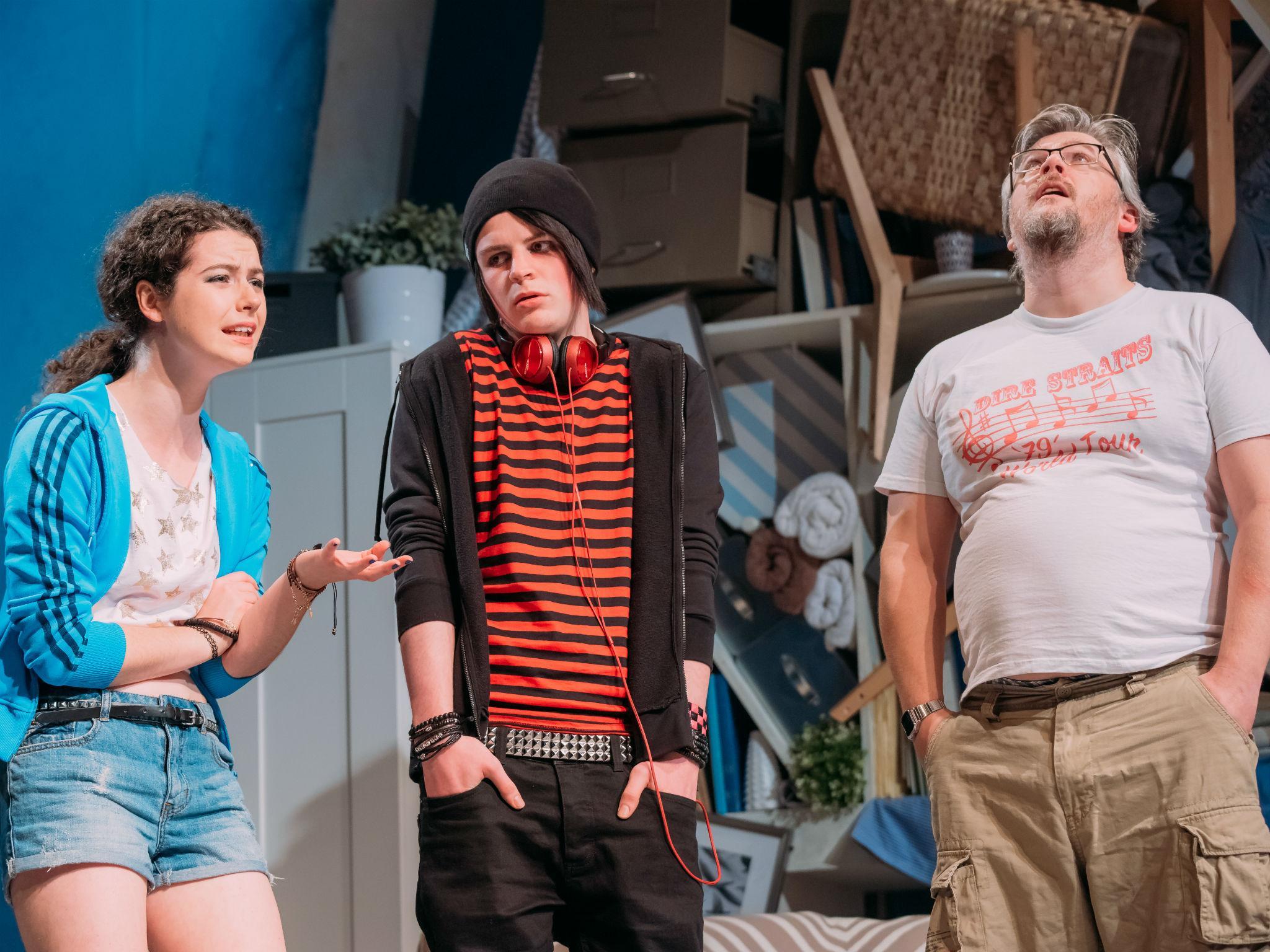Jumpy, Royal Lyceum, Edinburgh, review: An overtly, vitally feminist play
April De Angelis’s West End hit comedy of mid-life crisis, teenage rebellion and a mother-daughter relationship in meltdown is directed by Cora Bissett

Women are at the heart of April De Angelis’s West End hit of 2011. Most prominently Hilary, half a century into her life and with her activist, feminist youth eroded in favour of wage slavery in a job she once hoped would make a difference, a husband who appears cheerful and impenetrably indifferent, and a huffy teenage daughter who is committedly exploring her sexuality while seemingly determined to keep her mother out. The choices Tilly (Molly Vevers), that daughter, makes are also thoroughly explored, while Hilary’s best friend Frances (Gail Watson), of a similar age but childless, offers a gleeful, devil-may-care flipside of the approaching menopause.
It’s a play that is overtly, vitally feminist, not because it makes bold claims to be so, but simply because these women are focused on and allowed to speak and develop at the heart of the play. The men are in many ways lumpen aberrations, but they have their uses; husband Mark (Stephen McCole) as a source of dependability on his better days; father of Tilly’s boyfriend Roland, played by Richard Conlon, as a vain, needy but superficially exciting placebo; and Josh (Keiran Gallacher), that boyfriend, as a monosyllabic nuisance.
This adaptation by director Cora Bissett, creator of the National Theatre of Scotland’s Glasgow Girls and Olivier-winning sex-trafficking drama Roadkill, crackles with the inherent comedy of the various dynamics in play, and it’s easy to see why the Lyceum’s new artistic director David Greig chose it as the second major play of his new reign. It’s a great night out, particularly for women, full of easy laughs, yet it’s one which has you leaving the theatre discussing its impact. In this the innocuous nature of the set-up is a benefit, which may invite all audience-members to ponder just how far feminist issues permeate their own life.
At the core of the piece – along with Jean Chan’s spectacular set, a gravity-defying tidal wave of furniture and domestic appliances – is Bissett’s direction, as vital and crackling as the bursts of empowering indie-rock anthems she punctuates each scene change with, and the central performance of Pauline Knowles as Hilary. Originally intended as a return to the Scottish stage for Daniela Nardini until she had to leave the project, Hilary is thrillingly multifaceted in Knowles’s reading of her; embittered but hopeful; hang-dog but radiantly sexual; young and old all at once. Alongside one of Scotland’s finest current stage actors, Watson is a striking comedy foil; Patsy and Edina in one character, whose “empowering” burlesque is cringeworthy because Watson nails every comic misstep to a tee.
It’s not perfect. Many of the dramatic peaks seem a little forced and the ending is undoubtedly pat, while the transfer of the action from London to Glasgow’s West End takes the odd misstep; when Tilly draws a friend’s gun for “a laugh”, it’s probably the first time a child has done that in this well-off, middle-class district.
Yet ultimately, it’s this issue that threatens to derail all the good work: class. Specifically, Dani Heron’s Lyndsey, Tilly’s best friend and the teen mum Hilary dreads her daughter becoming. The performance is warm and amusing, but only once does the script allow Lyndsey to step outside the role of ditzy comic relief, when she’s encouraged by Hilary to name her fears for life ahead. Yet this encouragement is to present a warning to middle-class Tilly, her education and future all ahead of her; the inescapable implication being that teenage pregnancy is something which happens to girls who aren’t smart or well-off and, worse, that Lyndsey’s seeming indifference to the murder of the child’s father is only good for comic relief.
Relating to the cause of anyone who doesn’t fit your own social profile requires imagination and empathy, and even for men, there’s plenty to discover and relate to in this tale of women aging, gaining experience and finding their way in life, as we all have to. Yet I imagine if I were a young woman in Lyndsay’s situation, I might watch this play and feel it wasn’t meant for me.
Subscribe to Independent Premium to bookmark this article
Want to bookmark your favourite articles and stories to read or reference later? Start your Independent Premium subscription today.

Join our commenting forum
Join thought-provoking conversations, follow other Independent readers and see their replies